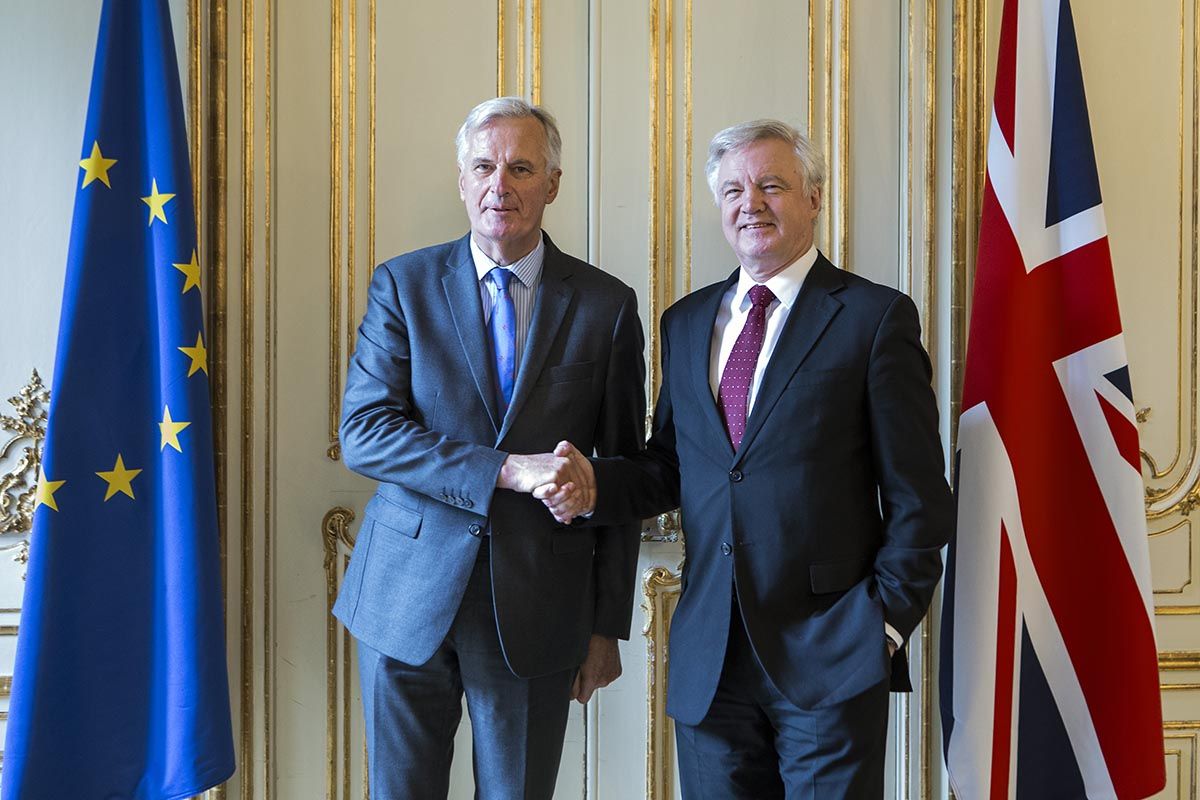UK says Brexit Transitional Period Must go Longer than Two Years if Required

© European Union, 2017 / Source: EC - Audiovisual Service / Photo: Lukasz Kobus
Britain raises prospect of a longer Brexit transition period if need be.
An official document detailing the UK's position on a Brexit transitional period confirms they are looking for the period to cover a two years.
However, eyebrows were raised when the draft legal document says UK negotiators would seek agreement with EU counterparts that it should extend beyond two years if necessity dictates.
The stance is expected to be met by resistance from those UK lawmakers who advocate for an immediate UK exit from the EU in March 2019.
"The UK believes the Period's duration should be determined simply by how long it will take to prepare and implement the new processes and new systems that will underpin the future partnership. The UK agrees this points to a period of around two years but wishes to discuss with EU the assessment that supports its proposed end date,” reads the relevant section of the draft.
The news comes as a group of 62 Conservative party lawmakers seek to pressure the Prime Minister to enter into a bare-minimum transitional period that sees the UK free of EU law in order to ensure as much autonomy is won from Brussels in 2019.
The BBC's political editor Laura Kuenssberg reports government sources say the guidelines don't change aspiration to two year transition and this is not the intention of the document.
This could placate concerns by this group of lawmakers for now and there is a general consensus that this group of lawmakers is not sizeable, or indeed determined enough, to cause serious trouble to May's government were she to adopt the existing position.
Belief in govt UK text and EU text side by side demonstrate not huge distance btw the two sides over the transition period - their political priority for March is getting that bit done
— Laura Kuenssberg (@bbclaurak) February 21, 2018
The position regarding the transitional period will be welcomed by markets who believe Sterling's outlook rests heavily on the implementation of a business-as-usual two year transition.
This allows for certainty and it creates a buffer to a sudden and disruptive break in the trading relationship with Europe.
Initial analysis on the back of today's document suggests the EU and UK are actually very closely aligned when it comes to the details of the transitional period which suggests the prospect of a deal being sealed at a Eurogroup meeting in March is highly likely.



